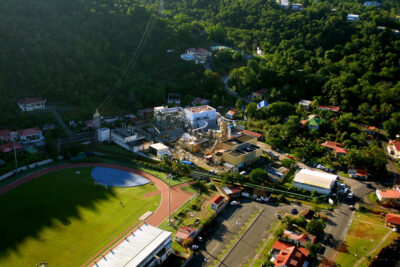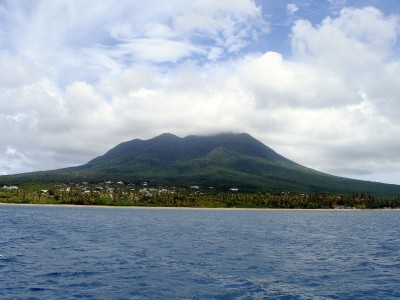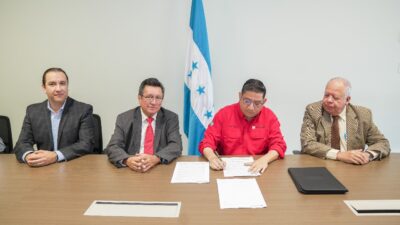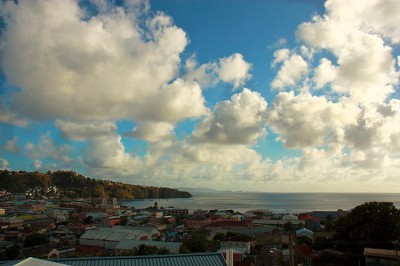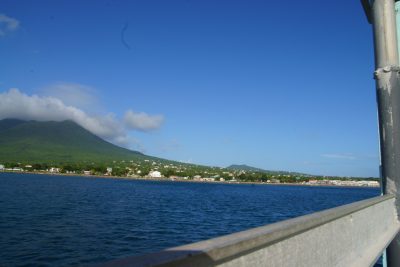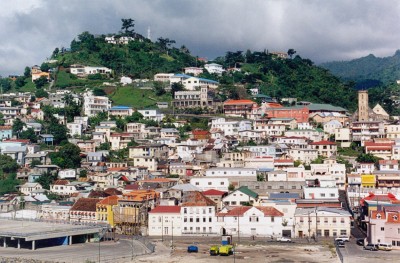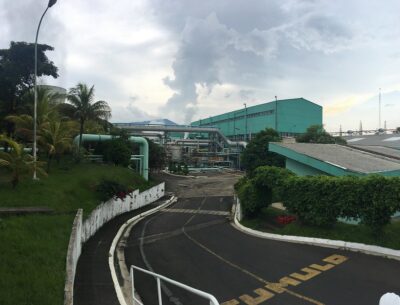El Salvador from geothermal power to green housing
There is geothermal development in El Salvador beyond geothermal power plants, like the plant at Berlin in eastern El Salvador, with green housing being developed.
A recent article looks at geothermal development in the Central American country of El Salvador.
Berlin, a city founded in the crater of the long-extinct Pelon volcano, surrounded by hillsides on which coffee plantations spread up to an altitude of 1,500 metres, has a geothermal power plant.
To the north-west, the thickly wooded hillside blends into the flat lands around the Lempa river, always with an eye on the faraway San Miguel volcano, more than 3,300 metres high.
Suddenly, a clear, steaming monster emerges from the green landscape, with pipes disappearing in all directions and large containers giving off more steam.
This is the Berlin geothermal plant in Usulutan province, which together with the Ahuachapan geothermal plant in northern El Salvador meets almost one quarter of the Central American country’s electricity demand.
‘Volcanoes are dangerous, but one can also benefit from them,’ says Carlos Ernesto Melgar, the plant’s head engineer.
In Berlin, water and steam emerge from 1,200 metres underground at a temperature of 300 degrees.
In 14 places across the site, the Salvadoran-Italian energy firm LaGea has bored holes in the hot magma layers of a volcano that is only inactive on the surface. A relatively simple process turns the mix of water and steam into dry steam, which turns two turbines to produce electricity.
These favourable conditions are common to practically all of Central America and Mexico, where there are hundreds of mostly extinct, some dormant and a few active volcanoes.
‘Here, hot water lies virtually right under the surface,’ says Rainer Schroeer, an energy expert from the German Society for Technical Cooperation (GTZ). ‘Virtually all one has to do is to push aside the soil, and one finds hot water.’
In the future, the GTZ will focus on using geothermal energy for ends beyond large power plants. In El Salvador, a potentially ground- breaking project is currently underway that German Development Aid Minister Dirk Niebel, who visited El Salvador in early October, described as a beacon.
The German company Duemmen, from Rheinberg in the Lower Rhine, has set up the huge gardening business Red Fox, growing geraniums and other decorative plants in greenhouses on 44 hectares of land. Some 270 million plants are expected to be exported to the US market every year.
‘Investment conditions were best here in El Salvador, even better than in Mexico,’ says entrepreneur Simon Schulz.
So far, Red Fox has only been built to half of its intended capacity, but it has already generated around 400 jobs. Eventually, the firm hopes to employ 800 people.
Until then, hot water remains plentiful. It heats the greenhouses and provides power for artificial lights, refrigerators and pumps.
And if Red Fox turns out not to be profitable, Schulz will try his luck with a different source of energy with which El Salvador is similarly blessed: the sun.”
Source: Monsters and critics









